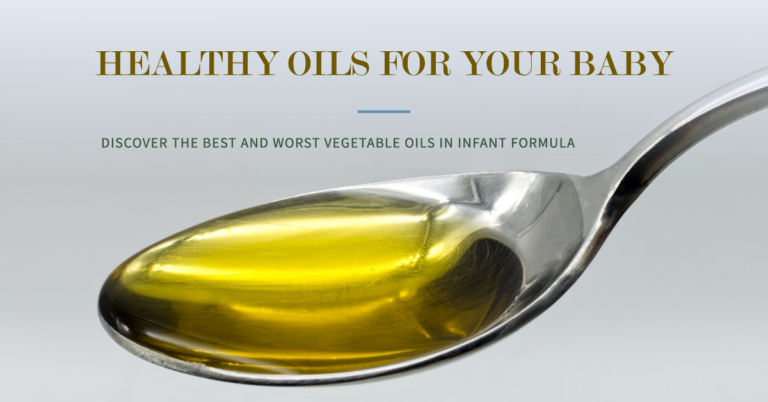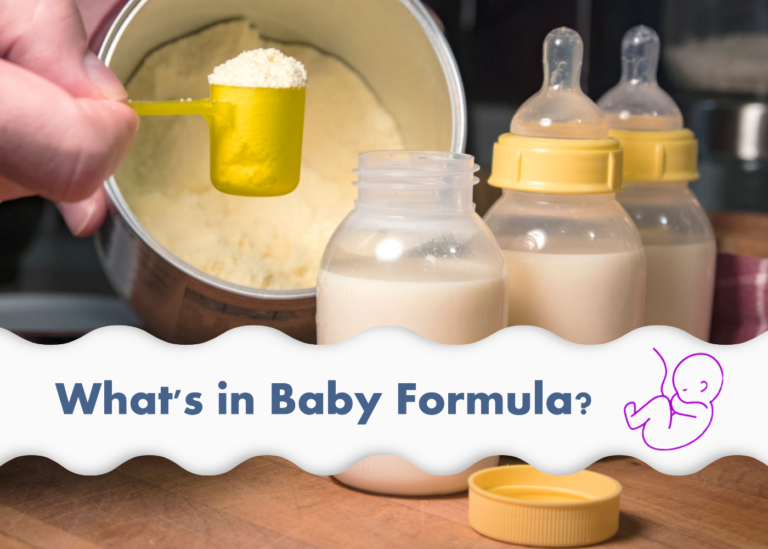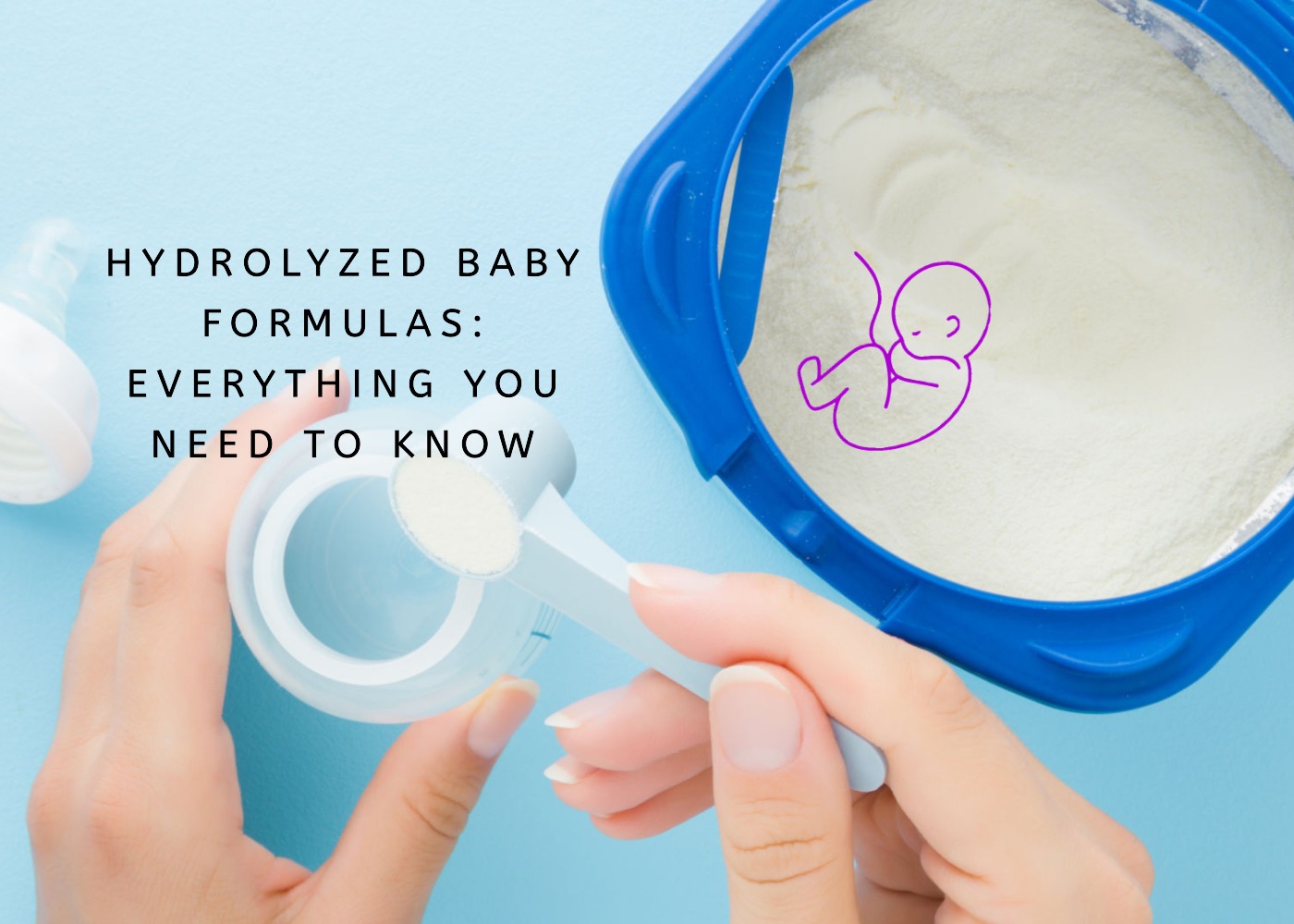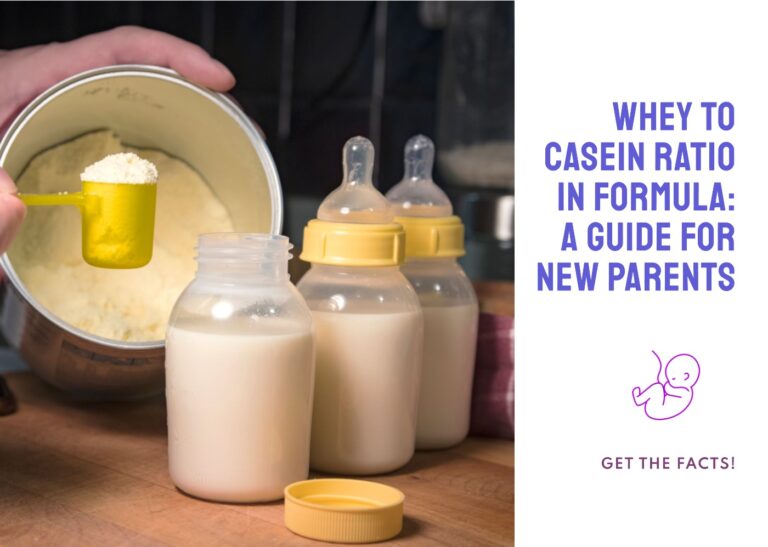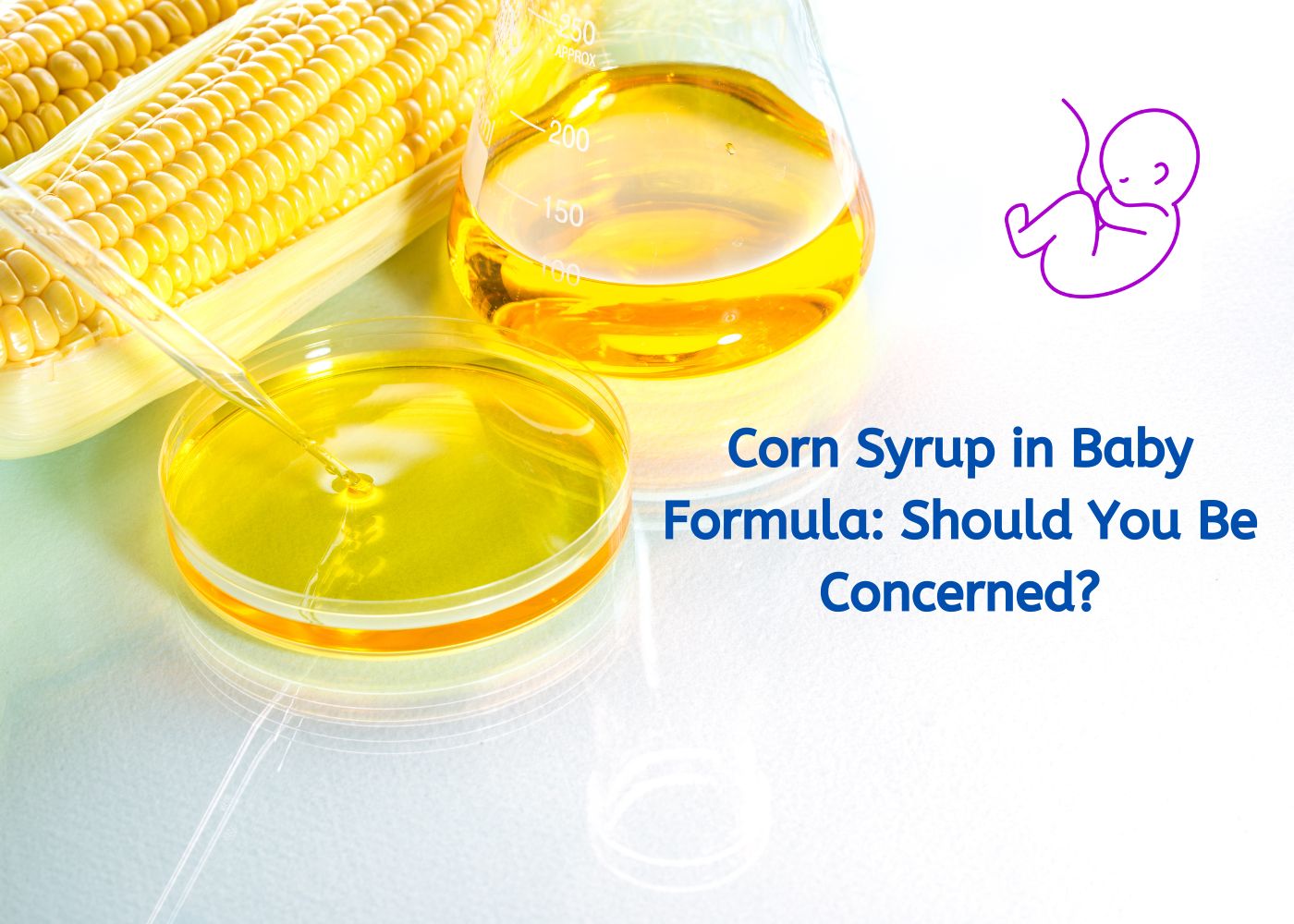
Key Takeaways
Corn Syrup in Baby Formula: Corn syrup is a carbohydrate sweetener derived from corn starch and is used as an energy source in some baby formulas. While it is recognized as safe by the FDA, it has been associated with potential health risks.
Controversies and Risks: Concerns have been raised about the use of corn syrup in baby formula, including increased food fussiness, reduced enjoyment of food, and potential health consequences such as childhood obesity.
Pros and Cons: Corn syrup in baby formula can provide a cheap and easily digestible source of carbohydrates, but it also comes with potential health risks. While it can be beneficial for babies who require lactose-reduced or hypoallergenic formulas, it is also high in sugar and is a processed ingredient.
Alternatives to Corn Syrup: There are healthier alternatives to corn syrup in baby formula, including lactose, starch, maltodextrin, and sucrose. Each of these alternatives has its own benefits and potential drawbacks, making it important to choose the one that best suits your baby’s needs.
European Formulas: European formulas often use natural sweeteners like lactose and glucose instead of corn syrup solids or other synthesized sugars. They are becoming increasingly popular due to stricter regulations and higher quality standards.
Final Thoughts: Generally speaking, avoiding baby formulas with corn syrup is better. Lactose-based formulas remain the best, but if your baby has problems digesting it, finding a formula with organic maltodextrin or organic starch is a good alternative. *Read: Best Formulas Without Corn Syrup
As parents, ensuring our little ones receive the best nutrition is always a priority.
Corn syrup is one ingredient found in some infant formulas that has been generating quite a buzz.
In this blog post, we’ll explore what corn syrup in baby formula entails, its pros and cons, and alternatives for parents seeking healthier options.
What is corn syrup in baby formula?
Corn syrup in baby formula is a carbohydrate sweetener made from corn starch, composed mainly of glucose molecules, and used as an energy source for babies.
This liquid sweetener is derived from cornstarch through an enzymatic process that breaks down its glucose content into smaller carbohydrates.
While some may confuse corn syrup with high fructose corn syrup (HFCS), it’s important to note the distinction between these two sweeteners.
Unlike HFCS, which undergoes additional processing to convert some of its glucose into fructose for added sweetness, regular corn syrup retains its original glucose makeup.
*Read: Starch in Baby Formula
Is Corn Syrup FDA Approved?
According to the FDA Code of Regulations, corn syrup solids are generally considered safe for infant formula use in limited quantities.
The Food and Drug Administration (FDA) has established strict regulations for infant formula production, including using ingredients like corn syrup solids.
However, manufacturers must ensure that all ingredients meet specific nutritional standards and test their products for safety before they hit store shelves.
Controversies and Risks
While corn syrup solids are generally recognized as safe and widely used in infant formula, there have been controversies surrounding their usage.
One concern is that early exposure to formula made with corn-syrup solids was associated with increased food fussiness and reduced enjoyment of food.
Moreover, growing evidence suggests that lactose substitutes in infant formula, such as corn syrup solids, may have health consequences. Synthetic sugars like maltodextrin can cause digestive discomfort for some babies and children.
Pros And Cons Of Corn Syrup In Baby Formula
Corn syrup in baby formula can provide a cheap and easily digestible source of carbohydrates, but it also comes with potential health risks.
Evidence suggests that corn syrup substitutes in infant formula may contribute to childhood obesity and other negative health consequences.
| Pros | Cons |
|---|---|
| Hypoallergenic: Corn syrup is often used in hypoallergenic formulas. It’s a good alternative for babies who are lactose intolerant or allergic to cow’s milk protein. | High in Sugar: Corn syrup is a form of sugar. Too much sugar can lead to obesity and other health problems in the long run. |
| Lactose-Free: Corn syrup-based formulas are typically lactose-free, making them suitable for babies with lactose intolerance. | Not Natural: Unlike lactose, which is naturally found in breast milk, corn syrup is a processed ingredient. |
| Easily Digestible: Corn syrup is easier to digest compared to lactose, which can be beneficial for babies with sensitive stomachs. | Environmental Impact: The production of corn syrup can have a significant environmental impact, including pesticide use and habitat destruction. |
| Energy Source: Corn syrup provides a quick source of energy for babies. | Taste: Some parents find that formulas with corn syrup make the formula taste overly sweet. |
| Cost-Effective: Corn syrup provides a cheap source of carbohydrates that babies can easily digest. | Obesity Risk: High fructose corn syrup can lead to obesity in children. |
| Growth Support: Corn syrup helps infants who require lactose-reduced formulas grow. | Food Fussiness: Early exposure to corn syrup may result in increased food fussiness and reduced enjoyment of food. |
| Therapeutic Use: Corn syrup is useful in certain solution and therapeutic formulas as a lactose replacement. | Potential Health Consequences: Substitutes like corn syrup solids may have potential health consequences, including digestion problems and negative impact on gut microbiota development. |
What are the alternatives to corn syrup in baby formula?
If you’re concerned about corn syrup in baby formula, several alternatives are available.
Each has its own benefits and potential drawbacks, so choosing the one that best suits your baby’s needs is essential.
| Lactose | Starch | Maltodextrin | Sucrose | |
|---|---|---|---|---|
| Source | Breast milk, dairy products | Plants, especially corn and potatoes | Plant-based, often corn or potatoes | Sugar cane, sugar beet |
| Digestibility | Easily digestible unless lactose intolerant | Digestibility varies, some babies may have trouble | Easily digestible, good for sensitive stomachs | Easily digestible |
| Natural vs Processed | Natural | Processed | Processed | Processed |
| Energy Release | Steady energy release | Slow, steady energy release | Quick energy release | Quick energy release |
| Taste | Mildly sweet | Neutral | Slightly sweet | Very sweet |
| Common Use in Formula | Primary carbohydrate in many formulas | Used in some formulas, especially for older babies | Used in formulas for babies with sensitive stomachs | Less common due to risk of tooth decay |
| Pros | Mimics breast milk, good for non-lactose intolerant babies | Good for steady energy release | Good for sensitive stomachs | Easily digestible |
| Cons | Not suitable for lactose intolerant babies | Not all babies tolerate well | Could lead to excessive calorie intake if overused | Risk of tooth decay |
Lactose
Lactose is a natural sugar in breast milk and is often used as the primary carbohydrate in many baby formulas.
It’s easily digestible and closely mimics the nutritional profile of breast milk.
For babies without lactose intolerance, lactose formulas are the way to go.
However, if your baby has trouble digesting lactose, you may need to consider a lactose-free formula.
Starch
Starch is a complex carbohydrate that can provide a steady release of energy for your baby.
Some formulas use modified starches that are easier for babies to digest.
However, it’s important to note that not all babies tolerate starch-based formulas well, so it’s best to consult your healthcare provider if considering this option.
Maltodextrin
Maltodextrin is a plant-based carbohydrate often used in formulas for babies with sensitive stomachs.
It’s easily digestible and can be a good option if your baby has trouble tolerating other sugars.
*Read: Maltodextrin in Baby Formulas
Sucrose
Sucrose, or table sugar, is sometimes used in baby formulas. While it’s easily digestible, it’s generally recommended to avoid formulas with added sucrose due to the risk of tooth decay. If you’re considering a formula with sucrose, it’s best to consult your healthcare provider first.
Do European Formulas have corn syrup?
European formulas are becoming increasingly popular in the United States due to stricter regulations and higher quality standards.
These formulas often use natural sweeteners like lactose and glucose instead of corn syrup solids or other synthesized sugars.
Organic ingredients: Many European formulas are made with organic milk from grass-fed cows, which may contain more nutrients than conventionally farmed milk.
No GMOs or artificial preservatives: European regulations prohibit the use of genetically modified organisms (GMOs) and most artificial preservatives in infant formula.
Lower sugar content: European formulas typically have lower levels of added sugars than American brands, although they still contain carbohydrates for energy.
Fortified with vitamins and minerals: Most European formulas are fortified with essential vitamins and minerals like iron, calcium, and vitamin D to support infant growth and development.
Conclusion And Final Thoughts
In conclusion, when choosing the best baby formula for your little one, it’s generally advisable to steer clear of those containing corn syrup. While corn syrup can provide a quick and easily digestible source of energy, there are healthier alternatives available that offer similar benefits without the potential drawbacks.
Lactose-based formulas remain the gold standard, closely mimicking the nutritional profile of breast milk. However, we understand that not all babies can tolerate lactose. If your baby has problems digesting lactose, don’t worry – there are still plenty of options available.
Formulas containing organic maltodextrin or organic starch are excellent alternatives.
Remember, every baby is unique, and what works best for one may not work well for another. Always consult a healthcare provider before changing your baby’s diet.
We’re Maria and Alberto, a married couple and educators who are nutrition enthusiasts. Even before we had kids, we were already crazy about nutrition.
We’d read scientific articles, watch videos from nutritionists, and spend hours listening to nutrition podcasts.
Today, we continue doing this, but in a different way, as we’ve learned to sift through the noise and trends. Nutrition, like any other field of knowledge, the more you read and learn, the more you develop a comprehensive understanding of reality, and that’s what has happened to us.
Before having our first child, we focused on learning everything we could about child nutrition, using the same techniques we had already employed, backed by our extensive knowledge in nutrition.
Our mission is to help other parents with their children’s nutrition, to help them become the best versions of themselves.
If we are what we eat and drink, which is absolutely true, let’s do it right!


